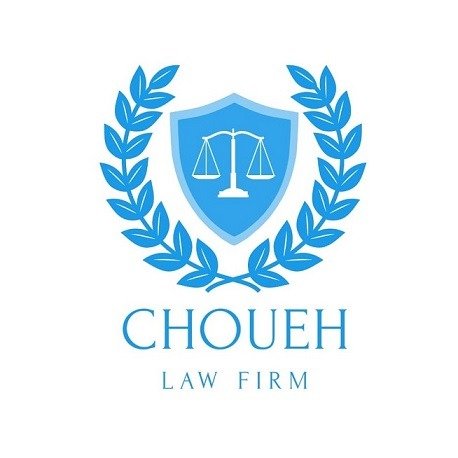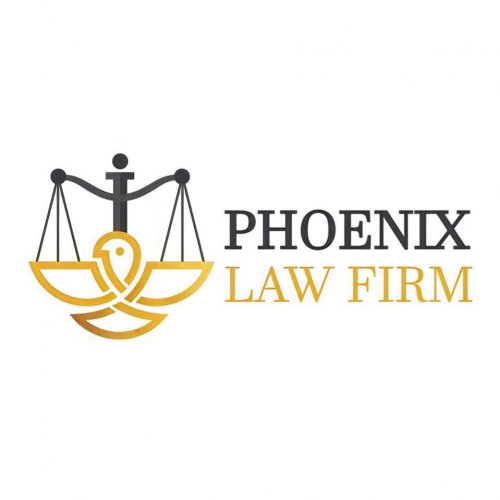Best Equity Capital Markets Lawyers in Lebanon
Share your needs with us, get contacted by law firms.
Free. Takes 2 min.
Or refine your search by selecting a city:
List of the best lawyers in Lebanon
About Equity Capital Markets Law in Lebanon
Equity Capital Markets (ECM) refer to the segment of the financial market where companies raise capital by issuing shares or other equity-backed instruments to investors. In Lebanon, ECM activities include Initial Public Offerings (IPOs), rights issues, private placements, and other transactions involving the sale of company equity to public or private investors. The Lebanese equity market is mainly overseen by the Beirut Stock Exchange (BSE) and supervised by the Capital Markets Authority of Lebanon (CMA).
Lebanon’s ECM sector reflects the country's broader financial environment and is influenced by both local regulations and international standards. Companies looking to become publicly listed or to raise additional funds through the issuance of shares must comply with a range of legal and regulatory obligations. This makes expertise in ECM law crucial for anyone involved in corporate financing activities in Lebanon.
Why You May Need a Lawyer
Legal representation and guidance are invaluable in the ECM sector due to the complexity of Lebanese laws and regulations. You may need a lawyer in the following situations:
- Structuring and executing an IPO or other public offering to ensure compliance with relevant Lebanese laws.
- Navigating the requirements for listing on the Beirut Stock Exchange.
- Drafting and reviewing prospectuses, offering circulars, and other key documents.
- Conducting legal due diligence for both issuers and investors before equity transactions.
- Handling regulatory filings and obtaining necessary approvals from the Capital Markets Authority.
- Advising on shareholder rights, corporate governance, and ongoing disclosure requirements.
- Managing legal aspects of private placements and cross-border equity transactions.
- Addressing disputes or investigations related to equity offerings or trading activities.
Local Laws Overview
Lebanon has a distinct legal framework governing ECM activities, influenced by Lebanese Commercial Law, Capital Markets Law, and regulations issued by the Capital Markets Authority. Some key aspects include:
- Capital Markets Law No. 161 of 2011: This law established the legal basis for the regulation and supervision of capital markets in Lebanon. It also created the Capital Markets Authority, responsible for issuing secondary regulations and enforcing compliance.
- Listing Rules: Companies must meet specific criteria to be listed on the BSE, including minimum capital requirements, shareholder numbers, and transparency in financial disclosures.
- Prospectus Regulations: Any public offering of shares requires the preparation and approval of a prospectus detailing company information, financial statements, and risks associated with the investment.
- Corporate Governance: Issuers must adhere to governance standards ensuring protection of shareholders' rights, transparent management structures, and proper disclosure of material events.
- Ongoing Reporting Obligations: Listed companies are subject to continued disclosure and reporting requirements to the Capital Markets Authority and the Beirut Stock Exchange.
- Anti-Money Laundering (AML) and Combating the Financing of Terrorism (CFT) regulations must be complied with when issuing or trading in shares.
- Foreign Investment Rules: While Lebanon generally allows significant foreign participation, there are sector-specific restrictions and related reporting obligations.
Frequently Asked Questions
What is the role of the Capital Markets Authority in Lebanon?
The Capital Markets Authority supervises and regulates the capital markets in Lebanon, including the licensing of market participants, approval of public offerings, enforcement of market regulations, and protection of investors’ rights.
Can any company list its shares on the Beirut Stock Exchange?
Not every company can list shares on the BSE. Companies must meet strict eligibility criteria, including minimum capital, financial performance, and transparency in their corporate governance.
What are the main steps for conducting an IPO in Lebanon?
The typical steps include engaging advisors, preparing financial statements, drafting a prospectus, obtaining approval from the Capital Markets Authority, meeting BSE listing requirements, and marketing the offering to potential investors.
Is a prospectus always required for equity offerings?
A prospectus is required for public offerings but may not be necessary for certain private placements, depending on the number and type of investors targeted. A lawyer can provide guidance on when exemptions may apply.
What ongoing obligations do listed companies have?
Listed companies must make timely disclosures of material events, submit regular financial reports, uphold corporate governance standards, and comply with all BSE and CMA regulations.
Are there restrictions on foreign investors in Lebanese equities?
Lebanon generally permits foreign investment in equities, but some sectors may have specific restrictions. All equity transactions involving foreign investors are subject to reporting requirements.
How are equity market disputes resolved in Lebanon?
Disputes may be settled through negotiation, mediation, or litigation in Lebanese courts. The Capital Markets Authority also has enforcement and supervisory powers to address violations.
What are the penalties for violating ECM regulations in Lebanon?
Penalties can range from fines and administrative sanctions to criminal prosecution in cases of fraud, insider trading, or market manipulation.
What is the difference between a public offering and a private placement?
A public offering is made to the general public and requires a prospectus, while a private placement targets a limited number of investors and may qualify for certain regulatory exemptions.
Do I need legal advice if I am only investing and not issuing shares?
While not mandatory, seeking legal advice can help investors understand their rights, evaluate risks, and ensure compliance with local regulations, especially in complex or large transactions.
Additional Resources
If you seek further information or support on ECM matters in Lebanon, consider consulting the following:
- Capital Markets Authority (CMA): The independent regulatory body for Lebanese capital markets.
- Beirut Stock Exchange (BSE): The official marketplace for trading shares and other listed securities.
- Lebanese Ministry of Finance: Provides guidelines on taxation and financial regulations related to equity investments.
- Lebanese Commercial Registry: Important for verifying company status and compliance history.
- Local Law Firms Specializing in ECM: These can offer tailored advice and representation in complicated transactions.
Next Steps
If you need legal assistance in the field of Equity Capital Markets in Lebanon, start by identifying the specific nature of your transaction or concern. Gather all relevant documentation, including company records, proposed prospectus drafts, or correspondence with regulators. Consult a lawyer or law firm experienced in Lebanese ECM law, preferably one registered with the Beirut Bar Association and with a proven track record in capital markets transactions. Early legal consultation can help anticipate issues, ensure compliance, and protect your interests throughout the process.
Do not hesitate to reach out to the Capital Markets Authority or the Beirut Stock Exchange for guidance on procedural requirements. Remember that ECM is a specialized legal area, and the right legal advice can make a significant difference in the success and legality of your activities.
Lawzana helps you find the best lawyers and law firms in Lebanon through a curated and pre-screened list of qualified legal professionals. Our platform offers rankings and detailed profiles of attorneys and law firms, allowing you to compare based on practice areas, including Equity Capital Markets, experience, and client feedback.
Each profile includes a description of the firm's areas of practice, client reviews, team members and partners, year of establishment, spoken languages, office locations, contact information, social media presence, and any published articles or resources. Most firms on our platform speak English and are experienced in both local and international legal matters.
Get a quote from top-rated law firms in Lebanon — quickly, securely, and without unnecessary hassle.
Disclaimer:
The information provided on this page is for general informational purposes only and does not constitute legal advice. While we strive to ensure the accuracy and relevance of the content, legal information may change over time, and interpretations of the law can vary. You should always consult with a qualified legal professional for advice specific to your situation.
We disclaim all liability for actions taken or not taken based on the content of this page. If you believe any information is incorrect or outdated, please contact us, and we will review and update it where appropriate.
Browse equity capital markets law firms by city in Lebanon
Refine your search by selecting a city.










